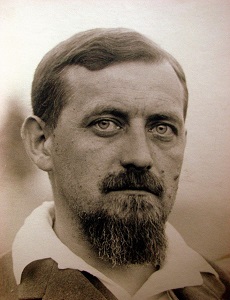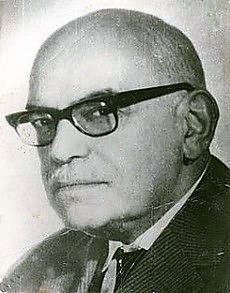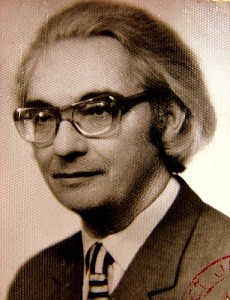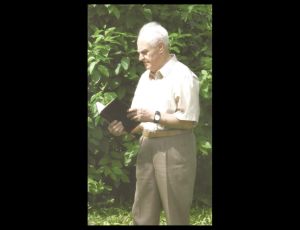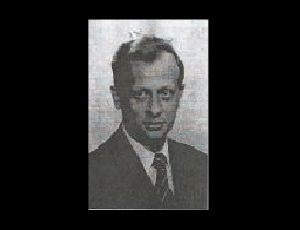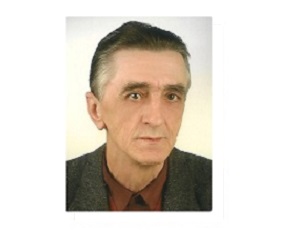The Chair of Turkish Studies at the Jagiellonian University is the oldest Polish academic center of Turkish studies.
The beginnings of Turkish studies at the Jagiellonian University are tied to prof. Tadeusz Kowalski, an outstanding orientalist, precursor of modern Polish turkology. Educated in Vienna, during the First World War, as a docent, he lectured on the Ottoman-Turkish language at the Jagiellonian University. After being an associate professor in 1919, he was nominated a head of newly formed Chair of Oriental Philology and, in addition to the Arabic and Iranian subjects, also included turkological items to the lesson program. Tadeusz Kowalski's research interests included: Ottoman and Turkish dialects, Kipchak language, Karaim language, Turkish loanwords in Polish, culture, religion, literature and folklore. In the interwar period, the Chair of Oriental Philology was educating students comprehensively and many of its alumnus later became researchers in various academic centers. One of Tadeusz Kowalski’s students and his assistant, Ananiasz Zajączkowski, in 1932 moved to the University of Warsaw, where he contributed to the formation of local turkology.
After the death of Professor Kowalski in 1948, the Chair of Oriental Philology was headed by the medievalist and arabist prof. Tadeusz Lewicki, and the turkological subjects were conducted by the altaist and mongolist prof. Marian Lewicki. In the following decades, the didactic program was gradually expanded, related to the development of the turkological cadre. The turkologists of the Chair at that time were inter alia dr Władysław Zimnicki, prof. Włodzimierz Zajączkowski, prof. Jan Ciopiński, dr Jerzy Lisowski, prof. Stanisław Stachowski, dr Teresa Ciecierska-Chłapowa. The dominant research areas were: language, folklore and literature of the Karaims, Gagauz language and literature, Old Turkish and Ottoman literature, Turkish onomastics, paleography, Turkish transcribed texts, Turkish words in Slavic languages, Polish-Turkish contacts.
In 1972 the Chair of Oriental Philology was transformed into the Institute of Oriental Philology, and the Department of Turkish Studies was created as a part of Institute. In the years 1973-1982 the Department was headed by prof. Włodzimierz Zajączkowski, and after his death in 1982-2000 by prof. Jan Ciopiński. From 1 October 2000 until now the Department is headed by prof. Ewa Siemieniec-Gołaś. In 2013 the Department of Turkish Studies was transformed into the Chair of Turkish Studies.
The Chair of Turkish Studies carries out first and second degree studies in the field of neofilology with specialization in oriental philology – turkology. The Chair cooperates with academic centers in Turkey (Istanbul, Ankara, Eskişehir, Antalya, Bartin, Tokat) and in Europe (Chieti, Vilnius).
Present cadre of Chair of Oriental Studies consists of the following researchers:
the Head: Prof. Ewa Siemieniec-Gołaś
Assoc. Prof. Grażyna Zając
Hilal Oytun Altun, PhD
Sylwia Filipowska, PhD
Jordanka Georgiewa-Okoń, PhD
Piotr Nykiel, PhD
Barbara Podolak, PhD
Marzanna Pomorska, PhD
Nalan Avhan, MA
Joanna Florek (PhD student)
Agata Pawlina (PhD student)
Research areas of the Chair of Turkish Studies:
• Turkish linguistics (with a particular focus on lexicology, word formation, dialectology and etymology)
• other Turkic languages (e.g. Ottoman-Turkish, Chuvash, Karachay-Balkar, Chulym, Tuvan, Bashkir languages)
• Turkish literature of the 19th and 20th centuries
• the latest Turkish literature
• literature of Turkish Cypriots
• Azerbaijani literature
• the history of the Ottoman Empire and the Republic of Turkey
• Polish-Turkish cultural relations
• Turkish words in Polish language
• Polish travel literature and journalism related to Turkey
• culture of Turks
• Turkish artistic handicraft
• Turkish music
• Turkish influences on the Balkans
• history of turkology
More information here.


